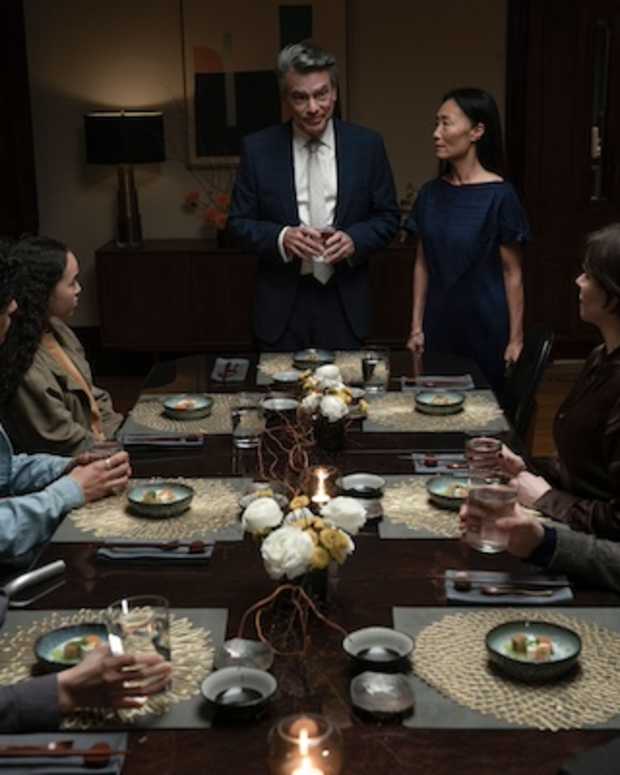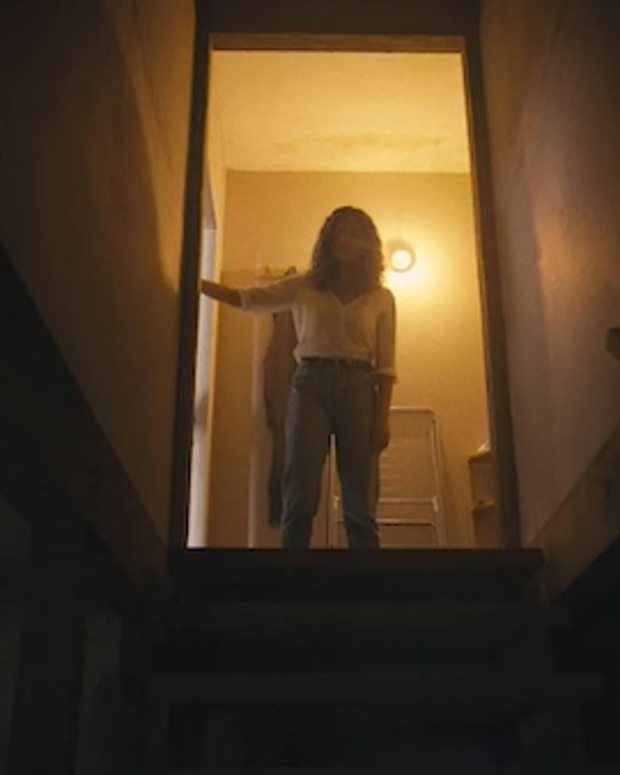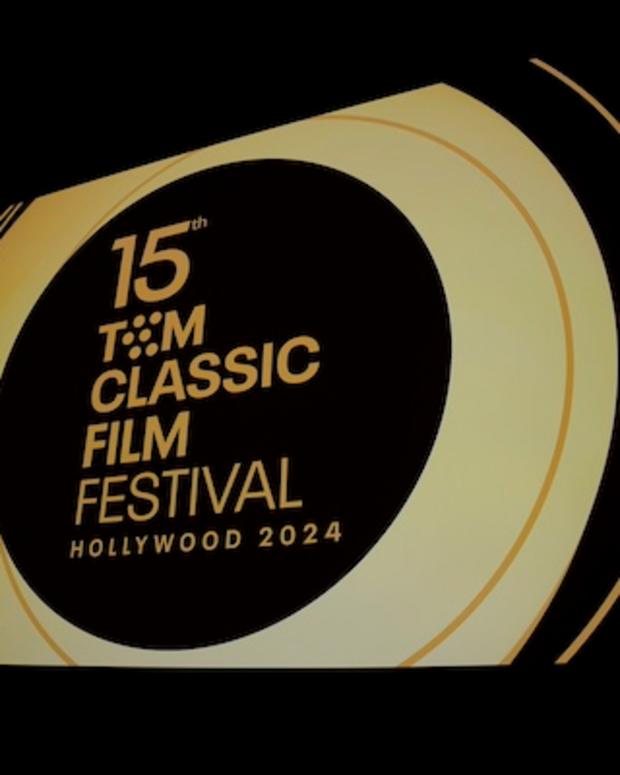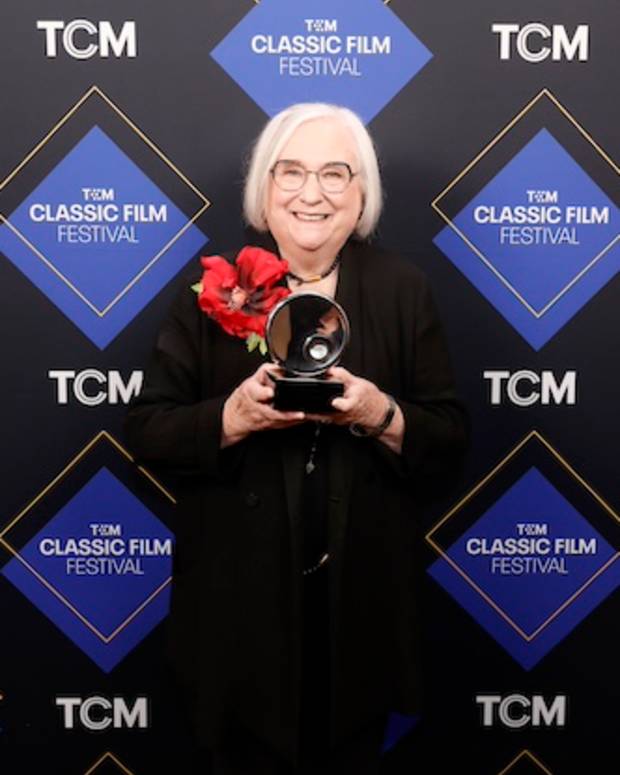Interview with 'The Exchange' Screenwriter Tim Long and Director Dan Mazer
![[L-R] Ed Oxenbould as Tim and Avan Jogia as Stéphane in the comedy THE EXCHANGE, a Quiver Distribution release. Photo courtesy of Quiver Distribution.](https://scriptmag.com/.image/c_limit%2Ccs_srgb%2Cq_auto:good%2Cw_700/MTgyNzA2NDg4NzQ4NTQ5NTM5/the-exchange-quiver-distribution-5.png)
[L-R] Ed Oxenbould as Tim and Avan Jogia as Stéphane in the comedy THE EXCHANGE, a Quiver Distribution release. Photo courtesy of Quiver Distribution.
A socially awkward but highly enterprising teenager decides to acquire a "mail order best friend"; a sophisticated exchange student from France. Instead, he ends up importing his personal nightmare, a cologne-soaked, chain-smoking, sex-obsessed youth who quickly becomes the hero of his new community.
In this double-header interview with screenwriter Tim Long, an Emmy-Award-winning writer for The Simpsons, and director Dan Mazer, Oscar-nominated for writing Borat Subsequent Movie, the comedic team behind the new comedy The Exchange, it's safe to say that bouts of laughter shared with these two. We discussed writing for comedy, the exploration of nuanced characters, and their unique journeys to becoming the best at their craft.
These interviews have been edited for content and clarity.
Interview with The Exchange screenwriter Tim Long
Sadie Dean: This story is surely from your life as a teen in the 80s, right?
Tim Long: Oh, it was totally based on a real story. I wouldn't have named a character Tim Long unless it really happened. I grew up in a small town in Canada, not called Hobart, called Exeter and I had an exchange student who was very different from the guy in the movie but at the same time, he bore some similarities, and he opened my eyes in ways that aren't entirely dissimilar to this movie.
It happened in the 80s I was, I was about the same age as the character, played so wonderfully in Ed Oxenbould, and I thought I was smarter than everyone around me. I wasn't, I was actually dumber, I just read a couple of more books, and for some reason, I couldn't find enough friends for my liking so I decided well if I can't make a friend, I'm going to import one. [laughs] I expected this French kid to be just like me, kind of a would-be snob who read a lot of books and thought he was better than everyone else, but instead it turned out to be this guy who was incredibly handsome, and incredibly popular with the girls, and who drove me crazy, initially, but who actually turned out to be a really good friend.
Sadie: I love that dynamic and giving the town something actually to be excited about, and to introduce this fish out of water character, I thought it was really well done.
Tim: Oh, I'm so glad. The point that I was trying to make is that this kid thought that the town didn't like him because he was smarter or something. But it turns out that the county didn’t like him because he was a dick. [laughs] And so when this guy came along as different as he was because he was so open and so big-hearted this little town embraces it, at least at first. And that's not all different than what happened to me.
[The Calling of ‘Ted Lasso’ the Feel-Good Show of 2020]
Sadie: The secondary characters, they're not over the top and they all have some kind of emotional nuance to them, and I think more so because thanks to Stefan who is embracing them and in turn is open and honest about everything about himself. Was that from actual people that you carried over from these real-life instances or was it something that you kind of made up or is it a combination of both?
Tim: I'd say sort of a combination of both. There’s nobody in the movie who's really 100% based on anyone real, apart from me. The only person who has any reason to be embarrassed is me. Everyone else's sort of a crop of the same, but the one thing I have, you know that they do have in common with people that I grew up with is that they might seem silly and eccentric, but they all have conflict in their life, and they all aren’t what they initially seem to be. And that's something you really observe in a small town, you have to work sometimes to get to know people. People in small towns are just as complex as people in big cities.

Avan Jogia as Stéphane in the comedy THE EXCHANGE, a Quiver Distribution release. Photo courtesy of Quiver Distribution.
Sadie: What piqued your interest to get into just the TV comedy writing game before getting into feature writing?
Tim: In terms of TV comedy writing, I think it was just as simple as the fact that I watched a staggering amount of television growing up. One of the nice things about growing up in a small town is it's not as easy to get into trouble, or at least it wasn't back then, like there was no crack epidemic in my small Canadian town in 1986, and like the character in the movie, I didn't have a robust social life. The only thing I had to do was watch six hours of television every single night. And because of that, I was such a huge fan of Letterman, such a huge fan of SNL and stuff. So, I thought, I don't know how you end up writing for one of these shows, but I'm gonna someday.
Sadie: Yeah, and you did it! How did you get into writing for the Late Show with David Letterman?
Tim: It was sort of a gradual thing. I went to the University of Toronto, where I wrote in the school paper, I wrote a humor column, and then I went from there to New York, and I managed to get a job in various magazines. I worked for this magazine called Spy, which was a big humor magazine back in the day. And then from there I managed to get a job with Bill Maher and worked there for a few years and then eventually made the jump to The Simpsons. I think one thing I've noticed with screenwriters and everyone's career path is that it’s different. But the one thing we all have in common is you work hard, you have a certain measure of talent, and you get very lucky. And you just have some combination of those three things to guide you along.
Sadie: Your TV animation writing background, did you see any creative challenges from writing TV to writing a live-action feature or was it pretty seamless for you?
Tim: I was very wary and very humble coming from The Simpsons where I've worked forever to live-action because obviously, the tone is different. You have to be a little more grounded, budgetary concerns are obviously something that you have to think about more with live-action. Like, we sent Homer to space this season [laughs] and it feels like we probably can't do that in a live-action movie. Luckily, I chose a story that was relatively grounded and didn't have a lot of CGI in it. My attitude was, I had the same attitude when I joined Letterman or when I joined The Simpsons, which was, I don't know anything. I’m here to learn and to just try to be humble and pick it up as quickly as possible.
Sadie: I feel like that kind of ties into going back to these secondary characters and writing for something like The Simpsons who have these rich characters that have all those nuances and translating that over to a live-action human, and still having that comedy release but also having real-life experiences happening - all that subtext. Did that character writing crossover come from writing for The Simpsons?
Tim: You know, that’s funny, I never thought of that, but I guess it's true. The Exchange did follow a town with a whole bunch of secondary characters, all of whom had like this big personality so in that respect, I guess The Exchange and The Simpsons, there is a link because in The Simpsons, Springfield really is sort of a secondary character sometimes. And that was certainly true in The Exchange.
Sadie: When did you decide, “OK, I'm going to write this story,” and actually get it on paper and then get your team with Dan and everyone else on board?
Tim: It was like everything else in filmmaking, it was incredibly arduous and when we look back, I can't believe it all came together. And like any movie, it has its own unique story. With this case, it started out as a spoken-word essay that I wrote for a charity event that was held here in LA. A bunch of writers are invited to tell short stories from some experience when they grew up. I wrote about my experiences with an exchange student about five or six pages, and I read it to a group of people at this charity event and it got a pretty good response. And it just so happens that my agent, this wonderful woman named Ann Blanchard from CAA was in the audience, she said, this you can maybe turn this into something.
And so she took my little live spoken word essay and sent it to a producer, this guy named Dan Hine, who is a producer with a company called Who’s On First Films in England and I'd worked with him before and he read it. And so he said why don't you write up a movie treatment, and so I wrote it up as a live-action treatment of about 10 pages and then he would send it back and say like, “I hate 90% of this but keep this part and try again” and I’d be like, “OK” [laughs] and so I did it again and again and again and again, you know, producers, that's what they do for a living, they hate stuff. [laughs] But he also loved a lot of it too. It went from him liking 10% of it, liking 15% to like 25%, and eventually, he liked it enough he thought, ‘well, rather than write this as a script, why don't we take it to some financiers and some small production companies here in LA and pitch it and see if they give us some money to write the script.’ And we did. And this wonderful company named LAMF [Los Angeles Media Fund], hired me to write the script. And then I would have maybe 30 drafts later and we eventually got it to a point where it's like well let's try to find a director, and then Dan Mazer was interested and we brought him aboard and the rest went smoothly.
Sadie: That's quite the journey for that too. That sounds like what, maybe three years that whole process?
Tim: Yeah, I think I read the spoken word essay in 2016 and the movie is now coming out five years later. It’s very arduous, I have to say, probably the first two years of that I wasn't getting paid, or maybe the first year in a half that I wasn't getting paid. Like a lot of screenwriting, it’s really a leap of faith.
Sadie: Is there anything else in the pipeline for you that's live-action are you sticking with animation?
Tim: I've got a taste for this now. I have a couple of ideas in the works and if anything reaches the point where I could actually get it produced, you'll be the first to know.
Sadie: Awesome! Any general advice for screenwriters who are looking into taking a real-life event based on themselves? What is something that they should not do or be aware of when doing that?
Tim: I think that just be great, and make sure that your script and your idea are in as good shape as possible. Pitch it to people as much as you can and get lots of feedback. I find that a lot of people tend to focus on the marketing part of the job. They're like, “Who should I talk to? What sort of managers should I send to?” I've had people ask me what stock paper they should use for their screenplay, those superficial things I guess are important, but just make sure the work is great. There's a line from Steve Martin, that I remember that he said, “Be so good that they can’t ignore you.” That is the best advice I think, just get yourself to a point where even if they want to ignore you, they can't. And drawing from my own experience, just be extremely lucky.
[Interview with ‘Flatbush Misdemeanors’ co-creator and star Dan Perlman]
Sadie: Luck, we all sure can use some of that. Tim, thank you so much, a fan of the movie. I very much look forward to seeing more of your work and hopefully the big screen soon.
Tim: I really appreciate it. Thank you so much!
Interview with The Exchange Director Dan Mazer
Sadie Dean: You have a varied career in the comedy world in both writing and directing, for both film and TV. What was the movie or TV show or maybe a comedian that sparked your interest in wanting to become a filmmaker?
Dan Mazer: There wasn’t sort of any one individual person. Really, my dad, essentially gave me an incredible education in [laughs] Jewish comedians. American Jewish comedians from the 50s onwards through growing up in the 70s and 80s, even earlier, I was raised on the Marx Brothers, Phil Silvers, and Mel Brooks. All those boys are specifically very Jewish, [laughs] which was interesting for a suburban London boy. And every spare minute instead of sitting down and throwing a ball in the garden or being taken out fishing, we would sit and we'd laugh over all those brilliant movies and brilliant comedy brains so that's really where my comedy education came from.
Sadie: That’s a great comedy education and roster of comedian greats. Anything Mel Brooks, hands down for me it's just pure genius.
Dan: Yeah, so true, he’s incredible. It's funny, my dad passed away 10 years ago and was able to see me start off being successful, but I like to think that he's been showing me my films in a weird way and you know the stuff that I've done with Sacha [Baron Cohen] and The Exchange I think they fit into his worldview and would be proud to sit me down and watch those, which is kind of always in the back of my mind, kind of an inspiration and benchmark of what I should be doing.
Sadie: I love that, having that personal, it's wonderful. From a storytelling point of view when approaching comedy - your comedy certainly skews from over the top, to quote-unquote, this has been a really uncomfortable comedy, to nuanced characters - when approaching a new story and characters, do you come in knowing which way you're going to skew your comedy?
Dan: My natural, bent, certainly when writing is towards kind of the more outrageous and the more edgy and, and the more extreme and I like to try things that haven't been tried before and push things as far as I can. Obviously, we're living in a time now, which makes that more difficult than ever. But I think it's an interesting challenge to work within the new parameters and having done this now for 20 years. Incredibly, it's good to evolve, it's good to move on. When I first started writing comedy, I was writing in the way of gross-out humor, it was like the Farrelly brothers and the Jim Carrey films. And that was just absolutely the prevailing sentiment. And now, you can't make those, you don’t really want to make those anymore, so I've had to shift my outlook and work out what still feels edgy and dangerous, but without that similar tone and I hope to do the stuff that I've done with Sacha ticks that box through, through, I think also The Exchange, even though I didn’t write that, I directed that, it feels quite edgy in terms of the themes it deals with, in terms of immigration and the outsider and racism and prejudice, that sort of thing. Pushing things and prepared being controversial is important to me.
Sadie: Especially dealing with all these social changes going on year to year, you're kind of reevaluating and seeing what buttons you can push and not get canceled for it.
Dan: Well yeah, I think the whole cancel culture, that's a whole separate conversation and I think a lot of comedians lament it. But I've maintained I think if the intention behind your comedies and the jokes is solid and pure and defensible, then I think they don't have to worry about being canceled, you can always justify what you're saying, and I think certainly I will always be able to do that.
Sadie: I enjoy that, with your movies especially with Sacha, as cringeworthy as they can be, you kind of walk away thinking, “Yeah, I never thought of it that from that point of view. I think actually learned something even though this was handled in such an absurd way,” you're using it as a vehicle to teach us something as a society, so thank you.
Dan: Well, thank you for saying that, that’s certainly the intention. So far so good.
Sadie: As a director in comedy, do you rely on the script and the material or the talent or is it a little bit of both to bring out the comedy elements and beats that you're intending to hit?
Dan: I think obviously you always start with the script and that moment getting it in your inbox and then reading, there has to be something in there that you find irresistible, and it has to live with you. And especially as a writer, I love writing, I love directing stuff that I write, it’s quite a long journey and you have to live with something for three years if you end up writing and directing something. When I look for a script, I look for something that I feel that has a similar tone to something that I would write and enjoy. [laughs] And sort of better than anything I could do or different or unique or brings something else. I think it always starts with the script and then the joy of being a director, rather than writing, is the fact that you can then take a look at what’s on the page and really enhance it.
I love stretching that other muscle of being a filmmaker, which is kind of adapting to your environment, and the day and the challenges, of what happened. It's a really interesting thing where you can't get two more different endeavors than writing and directing. Writing is infinite. All it is, is words on a page. You can finish your day, and then read it, not like it the next day, go back and reinvent everything, because there's no harm, no foul. Directing couldn't be more different. You're on a location, you're with your actors, you're on the set, you’re with whatever, but a finite amount of time for one day, you've got to start at nine, and achieve whatever you need to achieve by seven, and then that's it. It's done. It's over. And the challenge of that, to me, is like I said just the polar opposite of the challenge of writing, and incredibly exciting and inspiring and the chance to have to lead this army into battle, in a day where it is what it is, you have to do what you have to do, and you have to get out of it alive and it’s something beautiful, ideally, great. It just challenges completely different parts of your brain, and intellect than writing does. I love the challenge of corralling your actors and your designers, your cameramen and convey what’s on the page and ideally elevates it and enhances it.
Sadie: For your new movie The Exchange, which has nuanced characters and subtle comedy, what attracted you to this material?
Dan: I just thought it was an incredibly specific world that dealt with very universal things. I love that combination of the idea of creating this period of time and place in the world. Very convenient and very specific in the 1980s, rural Canada, but bringing to it a theme that is very kind of current and universal as a sense of prejudice, racism, and judgment, that even though the film's a period film and feels like a million years ago, all the things are still incredibly relevant and prevalent even more than back in the 1980s. I love the themes of that. And beyond that, I think the first thing that I loved, I just thought it was fantastically brilliantly written, I thought it was funny and charming and Tim Long, who spent some time writing on The Simpsons for 20 years is a treasured, nice, lovely writer of the team, it just created something that felt very kind of unique and to have that combination of being both brilliantly funny but also incredibly believable and authentic at the same time, which is a very rare thing to do so, all those things were what really ticked every box.
Sadie: Speaking of Tim Long, what was that collaboration process like working with him on this project?
Dan: It was fun. It was a dream, because for being an Ivy League, blue ribbon, top-notch writer, he has an incredible sort of confidence. And none of the fragility that you often get with writers, which is when you ask them to change or examine a new idea, it doesn't it doesn't sort of challenge his ego and confidence, he’s always delighted to try different stuff. It was just a joy of collaboration where I think we both did dovetails into each other’s world. I'd be very happy when I was sitting on set, he was sitting behind me saying, “Have you thought about trying this?” which was just a joy for a director to have a comedy collaborator and a voice in that partner and partner in crime, a brother in arms, a voice you really trusted. And then you know similarly, obviously, I’m a writer myself, I think he respected my point of views and never shirked at any suggestion or any kind of rewriting a new idea. I think we felt like kindred spirits and having both over the years being involved and devoted ourselves to long-running and to beloved comedy staples, it was nice to we came together and could do our thing independently.
And obviously, it's a very personal story for Tim and so I felt a great responsibility, conveying that because it comes from his heart and everything kind of resonates, but he was remarkably generous in terms of giving me the latitude to do what I wanted with it, it wasn't at all prescriptive so that was incredibly special in fulfilling and benevolent trust and faith. I think he agrees with the final result which is the most important thing for me.
Sadie: Any advice for comedy writers and directors on maybe some nuances they should consider or tropes that they should avoid when making a comedy film?
Dan: My advice is always to try and be different. Don't try and be a bit like that thing that I saw that I like. And you know, obviously, we're all interested in something we’ve seen and we all start off somehow impersonating those things that we love. I've put any success that I've had down to the fact that I always wanted to create something that I felt hadn't been done before or was more extreme in something that has been done before or just felt in some way a bit more radical than the stuff I was watching. Especially if you're starting out, make a noise and disrupt. Take a big swing, because in a world where everybody's competing for the same oxygen, you have to lift your head above the parapet somehow and be noticed.
Sadie: I think that's wonderful advice – disrupt. Dan, thank you so much for your time and a fan of your work and your new film, The Exchange.
Dan: A real pleasure to speak with you and thank you for your kind words I really appreciate it and glad you enjoyed the movie. Thank you.
The Exchange will be available on-demand and digital on July 30th.






![[L-R] Quvenzhané Wallis as Zora and Jennifer Hudson as Maya in the Sci-Fi Thriller film, BREATHE, a Variance Films / Warner Brothers release.](https://scriptmag.com/.image/ar_8:10%2Cc_fill%2Ccs_srgb%2Cfl_progressive%2Cg_faces:center%2Cq_auto:good%2Cw_620/MjA1OTIxMzMzNzg2MTkxMTI2/breathe_still-4.jpg)


![[L-R] Jennifer Pyle, Carla Turner and Gina Dobson of BAB On 3!](https://scriptmag.com/.image/ar_8:10%2Cc_fill%2Ccs_srgb%2Cfl_progressive%2Cg_faces:center%2Cq_auto:good%2Cw_620/MjA1OTIwOTg0MjgzMjI3NjAy/bab-on-3-creators.jpg)



